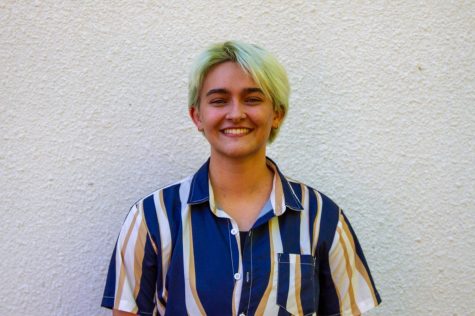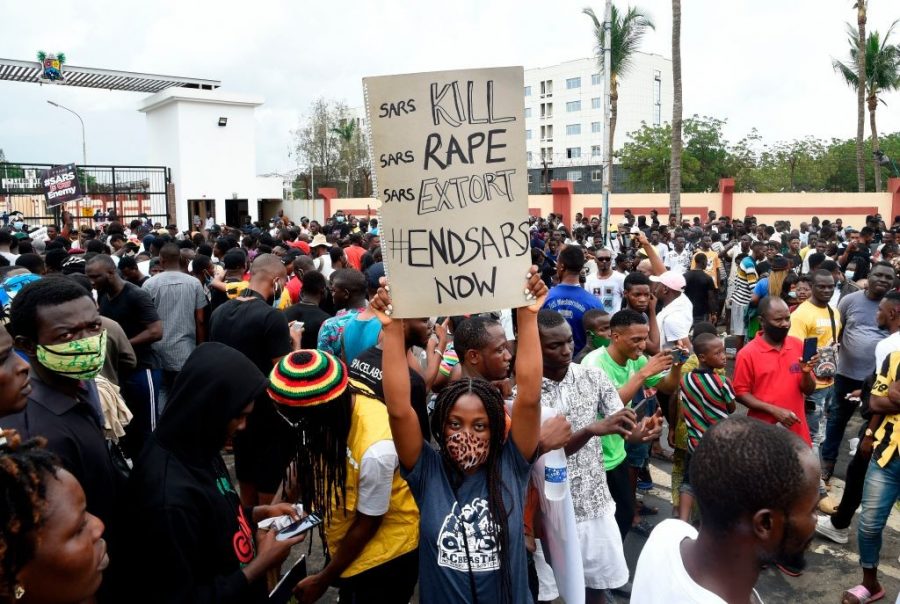Murder and torture against the youth population
Global attention rests on Nigeria as the actions of SARS come to light
More stories from Lauren Spierings
Photo by Submitted
SARS primarily targets people between 18 and 30, which represents about half of the current population of Nigeria.
The protesting of police brutality is not a foreign concept to the population of the United States. The summer of 2020 saw nationwide protests in response to police brutality, particularly in the context of the Black Lives Matter movement.
However, the U.S. is not alone in experiencing these protests. In particular, Nigeria is in the midst of its own protests against police brutality, with arguably more openly deadly consequences.
The disrest mostly came to head in October 2020 and quickly spiralled into more charged and violent conflicts.
The conflict lies with a group known as Special Anti-Robbery Squad, which functions as a federal police force of 15 men, according to The New York Times. Established in 1992, SARS was created to help control violent crime in Lagos, which is one of the most populous and important cities in Nigeria and the African continent.
According to Amnesty International, SARS is responsible for 82 cases of torture, extra-judicial execution and ill treatment from between Jan. 2017 and May 2020 alone.
The New York Times said SARS has been accused of targeting young and well-dressed people in their attacks, shaking them down and harassing them. Most victims are between the age of 17 and 30, according to BBC.
For context, almost half of Nigeria’s population is below 30, according to The New York Times.
A hashtag arose in 2017 in light of these injustices, known as #EndSARS. Global attention on Nigeria has only skyrocketed since, particularly due to the nature of what a SARS encounter looks like.
According to Amnesty International, the Nigerian government created an Anti-Torture Act in 2017, but evidence shows it is not being followed.
Amnesty International found multiple cases exhibiting abuse of SARS detainees, with signs like scars, bruises and dried blood appearing on the bodies of the detainees after they were released.
SARS is also accused of extorting money and other valuables from those they detain, among other crimes.
The unrest and global attention on SARS truly came to head when the video footage of a SARS arrest showed SARS officers dragging two men out of a hotel on Oct. 3. The graphic footage ends with one of the men being shot in the head, according to The Guardian.
Since the first video was posted online, many more videos and photos of proof began to appear. This, according to The Washington Post, led the Nigerian Police Force to announce on Oct. 11 that SARS had been dissolved and at least two officers were fired.
Protestors were allegedly unhappy to learn other members of SARS were to be redeployed into other jobs.
Muhammadu Buhari, the president of Nigeria, promised the government was working for reform and asked protestors to clear the streets.
This is not the first time the Nigerian government has promised reform, according to The Washington Post. Protestors remained doubtful and continued protesting despite Buhari’s words.
The protests look largely similar to those which took place in the U.S. during the surge of BLM protests, with marches, flags and signs.
However, Babajide Sanwo-Olu, the Lagos state governor, along with other authorities, accused the protestors of criminal acts such as looting and arson.
The tension only grew worse when on Oct. 20, 12 protestors were shot and killed by the Nigerian police and army at two different locations in Lagos as they peacefully protested, according to Time.
The extent of the open hostility and active hate against the youth of Nigeria from their own federal government is horrific and utterly unacceptable.
SARS, and by extension the Nigerian police force and its army, are abusing their power over the citizens they are supposed to protect.
Despite the global backlash on platforms like Twitter, the basic inaction of both the Nigerian government and other global authorities speaks volumes of where their priorities lie.
Spierings can be reached at [email protected].

Timothy Spierings is a fourth-year Spanish and journalism student. This is their eighth semester on The Spectator staff. They enjoy trying all types of new foods and listening to new music artists and are currently trying to learn the bass guitar.











